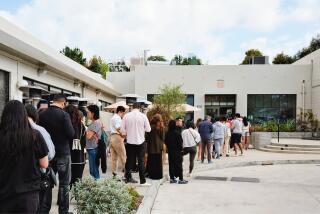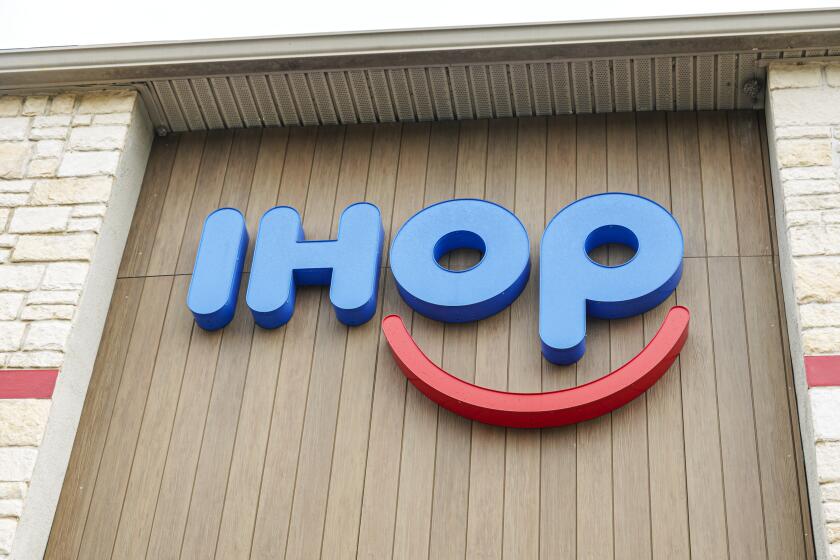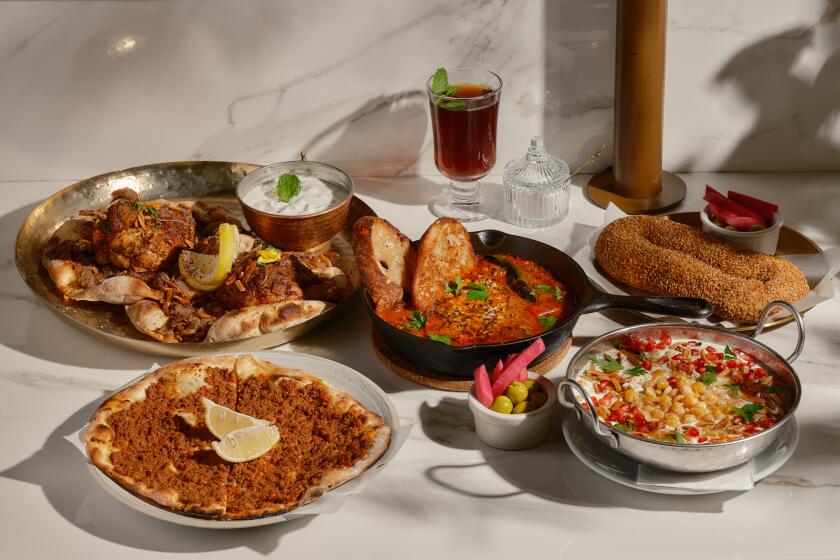The Art of Conversation Is Percolating at Cafes
Strangers are doing something radical in Seattle. They’re talking to each other.
The concept of meeting someone new and talking about issues of common importance, gradually smothered by urban life, has been reborn through Conversation Cafes. Signs on coffeehouse tables and open invitations to talk draw lawyers, housewives, even the homeless, to discuss anything from safe streets to war in Iraq.
Although simple, the Seattle-born movement has taken off quickly since its start last year.
Conversation Cafes are now percolating worldwide, from California, Kentucky and Florida to Canada, Australia and the United Kingdom. The salons have become a forum for small groups of people to meet on a weekly or monthly basis and discuss meaningful issues.
“Whenever two people engage in conversation, it not only impacts the individuals ... the people change society,” said Vicki Robin, who came up with the idea for the chattercafes.
Robin, co-author of “Your Money or Your Life,” a guide to living better by spending less, developed the idea for conversation forums four years ago in a bid to expand the book’s ideas of personal transformation.
She originally thought that the format for public discussion should be a radio show, but that never got off the ground. Then there was a TV program that never happened. Finally, after brainstorming with friends, Robin settled on the idea of free-form salons, to be held at neighborhood cafes and coffee shops.
Cafes seemed the most logical location because anyone would be allowed to join the conversation and, she said, “there’s more chance of diversity.”
Robin said people too often close themselves off, not willing to trust the unknown, and surround themselves with like-minded people. She said they never challenge themselves to really think about even the most minute of issues.
“There’s so many reasons why it’s very dangerous for people to discover each other,” Robin said. “There’s so much power that comes out of open dialogue.”
Intent on creating a network for people interested in self-reflection and desiring cultural change, Robin pioneered her conversation initiatives on July 5, 2001, at the Grateful Bread deli-bakery, near her home in north Seattle’s Wedgewood neighborhood.
The core group of people who attended the meetings eventually became the co-creators for the processes and agreements that now define the discussions.
The rules: Listen with respect and without judgment, honor diversity of opinion, speak about what is personally meaningful with honesty and depth, and inquire before advocating.
“I thought, ‘This is so simple and small scale, I should be able to do this,’ ” Robin said.
Then came the terror attacks of Sept. 11, 2001.
“As I watched the debate unfold, I realized that we needed cultural dialogue,” Robin said. “We needed to be able to learn our way through this. We needed to unite as a nation.”
Motivated by the tragedy, she began fostering more Conversation Cafes, with the movement climaxing in January, when there were 24 cafes throughout the Puget Sound area.
Robin also organized Conversation Week, featuring several days of conversation events. The second annual weeklong event is scheduled to kick off in Seattle on Jan. 26 at the Elliott Bay Bookstore Cafe.
Today, Robin has trained 60 cafe hosts, with about 17 ongoing cafe conversations throughout Seattle and at least half a dozen other locations, including Missoula, Mont.; York, Pa., and Carmel, Ind.
Recently, host Joe Leeak held a Conversation Cafe at Nana’s Soup House in Wedgewood, Wash. After setting the ground rules, he and the three other men sitting at the table introduce themselves and talk briefly about why they’re there.
“I just came for a little hit of cafe conversation energy,” said Lloyd Sieden, a regular at the meetings.
Discussion is a mixed dialogue on how safe people feel and common cultural myths. Talk ebbs and flows between personal safety -- both nationally and globally -- myths surrounding genetically engineered food, and eventually ends on cars and transportation.
“It always amazes me where you start and where you end up,” Leeak said after the 90-minute meeting.
Like most, Leeak enjoys the energy that emanates from cafe conversations. He said he’s also looking “for the chance to get a reality check on things.”
“I get value out of knowing whether other people’s experiences are similar to mine,” Leeak said.
It’s that connection and sense of community that Robin said makes people return each week.
“People get up from the table with a renewed faith in their fellow human beings,” she said. “I think people yearn for good conversation. They yearn to be heard.”
More to Read
Eat your way across L.A.
Get our weekly Tasting Notes newsletter for reviews, news and more.
You may occasionally receive promotional content from the Los Angeles Times.






